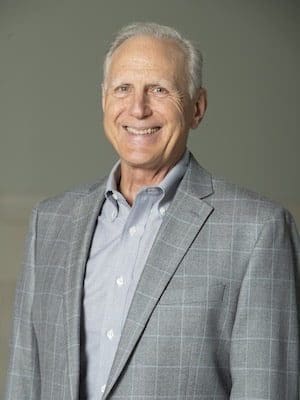By John Pierce
Several years ago my phone rang and it was Truett Cathy. He was very unhappy.
The state of Georgia, he felt, was keeping at-risk children in bad situations and making it more difficult for him to get them into the secure, loving foster homes that he fully funded. He had strongly expressed his dissatisfaction to then-Gov. Sonny Purdue.
“I’ll have to call him back and apologize,” Mr. Cathy told me.
He decided to take his cause directly to churches, he said, noting that ministers and others often know of kids in need of such nurture and care. So he quickly got to his point in calling me.
“I want to take out an ad in your publication.”
He was not interesting in pushing his fried chicken among Baptists — though an obvious key market — but making church leaders aware that kids in need of safe, loving homes have a place to go at no cost: his WinShape Homes in an around Georgia.
Advertising revenue is highly favored in our business. But I let my ministerial sensitivities mar my business side in front of a business genius — and delved into a deeper conversation about his concern for children and his frustration with the situation at hand.
Then I suggested doing a feature story (published September 2007) on his role as “Grandpa” to many. He liked the idea and asked that I meet him at the Chick-fil-A headquarters on Atlanta’s south side to make that happen.
I countered with the idea of doing it at a foster home on the beautiful mountain campus of Berry College since it would be good for photography and offer a chance for me to visit my alma mater. The deal was struck — though I probably should have proposed a series of high-priced, full-page ads instead.
Our lunchtime conversation at the home — surrounded by 13 kids, two parents and a few other guests — was delightful and revealed his deep commitment to providing positive family life for those who otherwise would miss out.
“Our purpose here is to establish stability and quality,” he told me. “… To be like a natural home.”
Parents Wendy and Jonathan Whitley were prime examples of doing that. “It’s not a job, Truett said. “It’s a calling.”
There was a deep determination — the same that drove his business success — to not be satisfied until every child in need of such opportunity had a place to live and grow. Whatever the cost.
“I spent $2 million dollars on this last year,” he said.
“$3 million,” whispered his WinShape Homes director between bites.
“$3 million,” he corrected himself in midsentence.
And I’m thinking, “A million here; a million there…”
The kids were excited that “Grandpa” had come to lunch — and he engaged them with love and accountability.
“They don’t have to call me Grandpa,” he said to me, employing an obviously well-used line. “But if they do, I pay for their college.”
He laughed at himself and noted that he also helps them buy their first cars — matching dollar-for-dollar what they earn. But he had to set a maximum, he said, when one teenaged boy was particularly industrious.
Any company’s practices and priorities can be debated, as well as any individual’s. But this was obvious to me on that good day about seven years ago: Providing safe, nurturing homes for boys and girls revealed a very loving heart and a desire to invest heavily in rightful places.
R.I.P.
Director of the Jesus Worldview Initiative at Belmont University in Nashville, Tennessee and former executive editor and publisher at Good Faith Media.

